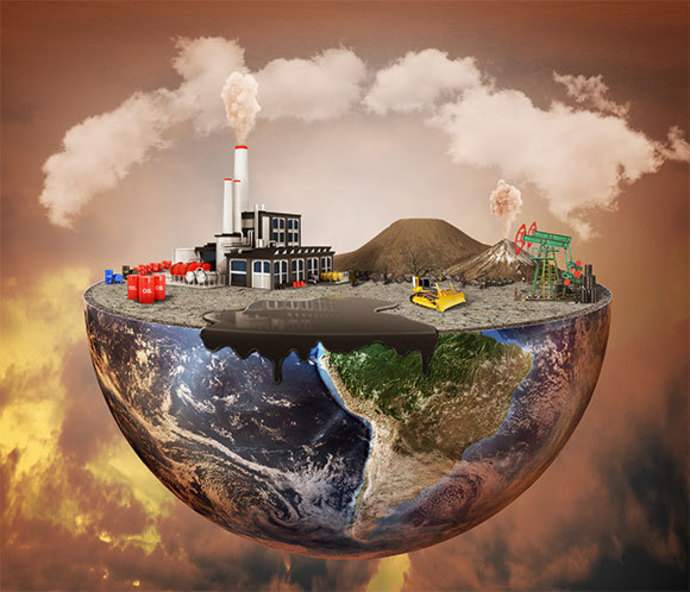Make Sunsets claimed that it launched weather balloons that may have sprayed reflective sulfur particles into the stratosphere, crossing a controversial barrier in the realm of solar geoengineering,
Geoengineering, which imitates a natural process that takes place in the wake of significant volcanic eruptions, refers to purposeful efforts to modify the climate by reflecting more sunlight back into space. Spraying significant amounts of sulfur and related particles has, In theory, the ability to reduce global warming.
Technically, releasing such substances into the stratosphere is not difficult, but a vast majority of scientists have avoided performing even small-scale outside studies. It's unclear whether anyone has yet conducted research on geoengineering that involves injecting materials into that particular stratum of the atmosphere.
The fact that the firm Make Sunsets seems to have proceeded forward with launches from a facility in Mexico without any public interaction or scientific review troubles scholars who have long researched the technology. The company is already making an effort to make sales by offering "cooling credits" for future balloon trips that might carry heavier loads.
The co-founder and CEO of Make Sunsets, Luke Iseman, acknowledges that the company's actions are part entrepreneurial and part provocation, a form of geoengineering activism.

Iseman hopes that by moving ahead in the controversial space, the startup will help drive public debate and push forward a scientific field that has refrained from carrying out even small-scale field experiments amid criticism.
“We joke slash not joke that this is partly a company and partly a cult,” he said.
Previously a director of hardware at Y Combinator, Iseman said that he expects to be pilloried by both geoengineering critics and researchers in the field for taking such a step, stating that “making me look like the Bond villain is going to be helpful to certain groups.”
But climate change is such a grave threat, Iseman explained, and the world has moved so slowly to address the underlying problem, that more radical actions are now required.
“It’s morally wrong, in my opinion, for us not to be doing this, what’s important is to do this as quickly and safely as we can,” he said.
“It’s morally wrong, in my opinion, for us not to be doing this, what’s important is to do this as quickly and safely as we can.”
Luke Iseman, CEO of Make Sunsets
Backlash from expert community
Dedicated experts in the field think such efforts are wildly premature, however, and could have the opposite effect from what Iseman expects.
“The current state of science is not good enough … to either reject, or to accept, let alone implement solar geoengineering," Janos Pasztor, executive director of the Carnegie Climate Governance Initiative, told MIT Technology Review.
Experts are calling for oversight of geoengineering and other climate-altering technologies, whether by governments, international accords or scientific bodies.
“To go ahead with implementation at this stage is a very bad idea,” Pasztor added, comparing it to Chinese scientist He Jiankui’s decision to use CRISPR to edit the DNA of embryos while the scientific community was still debating the safety and ethics of such a step.
Make Sunsets has drawn comparisons to an incident that occurred ten years ago when an American businessman reportedly dumped 100 tons of iron sulfate into the ocean in an effort to create a plankton bloom that would benefit salmon populations and absorb carbon dioxide from the atmosphere.
The practice is known as iron fertilization, and critics claim it breached international regulations on the practice, which were partly motivated by an increase in business proposals to sell carbon credits for such activities. Some people think that it later hindered field research activities.
Pasztor and others emphasized that Make Sunset's initiatives highlight the urgent need to create widespread oversight and unambiguous guidelines for ethical geoengineering research. These efforts will also help determine whether or under what circumstances there should be a social license to conduct experiments.
The Biden administration is creating a federal research strategy that will direct how scientists move forward with geoengineering investigations, according to MIT Technology Review.
The Environment and Climate Change portal is produced in cooperation with the Goldman Sonnenfeldt School of Sustainability and Climate Change at Ben-Gurion University of the Negev. The Jerusalem Post maintains all editorial decisions related to the content.
